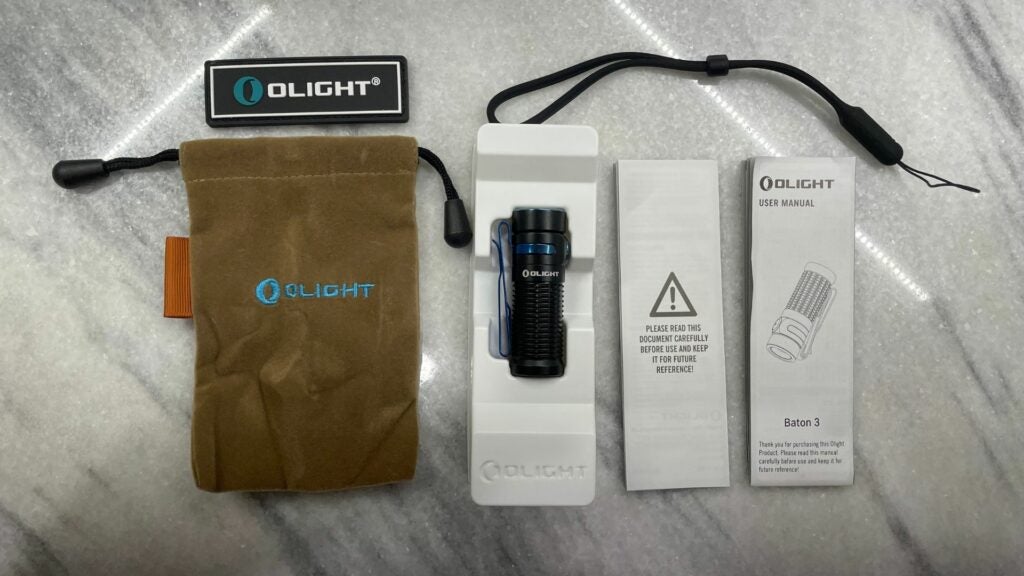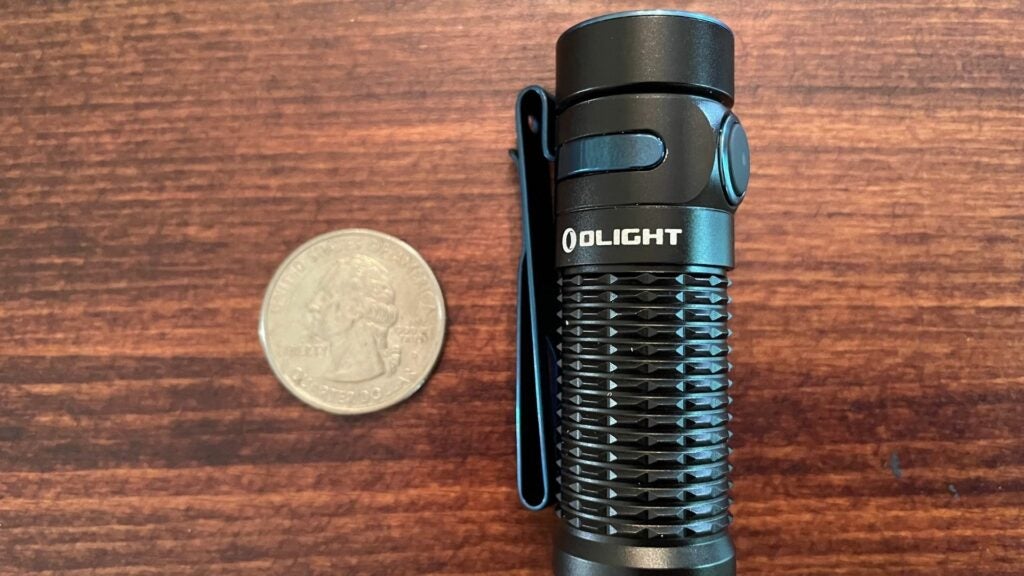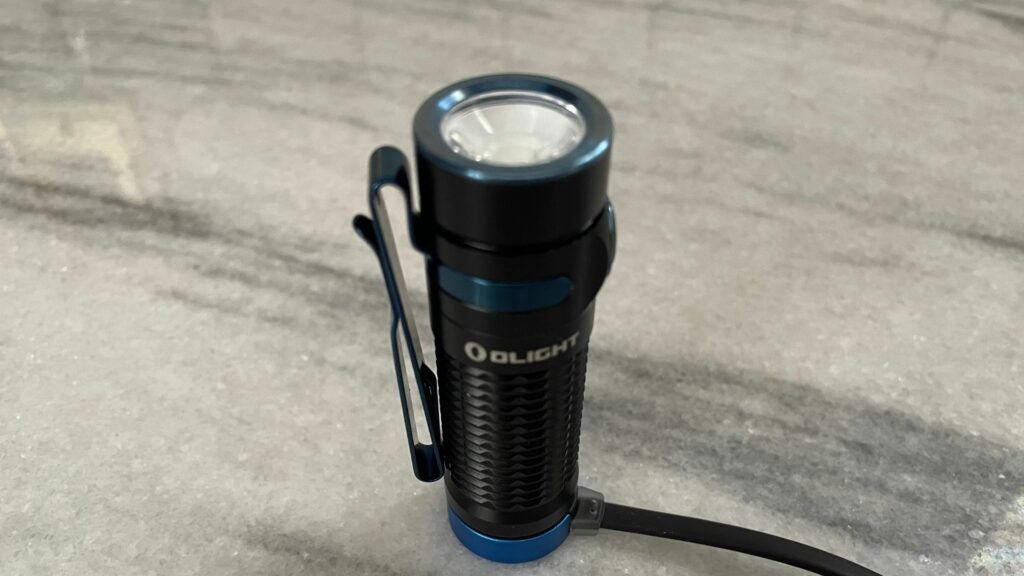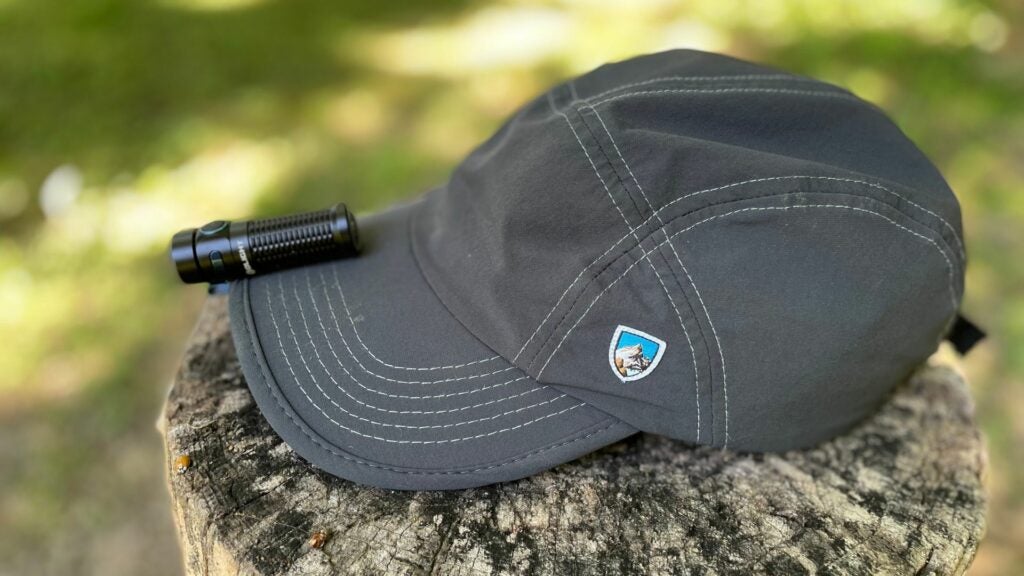The darkest place I’ve ever been was the Goochland and Poplar Pit cave complex in Rockcastle County, Kentucky. The cave is the longest known cave in the area with more than 11.8 miles mapped and more remaining unexplored. At the time, I was a member of The Ohio State University Mountaineering Club. Using the club’s official letterhead, we requested a map from a local Kentucky spelunking grotto so we could explore the cave. When it arrived, the map carried an ominous warning: “Cave exploring is a dangerous activity, and can kill you. People have been trapped by flash floods in this cave. You can drown in water. Cold water can kill. You can get lost. You can run out of light. There can be other unexpected dangers.”
We had been deep underground for more than eight hours, and stopped near a small waterfall to take a break and eat. It was a trickle of water, actually. And, when I stepped into the pool it was emptying into and looked up, I could not see its source. I was standing in a cylindrical room about 12 feet in diameter carved out of the rock. My headlamp beam wasn’t bright enough to pierce the darkness all the way to the top. The water’s source must have been 100 feet above. The chamber extending upwards was fluted in parts, like the inverted sides of a Corninthian column. The water must have been carving this cylinder out of the living rock for millennia.
The old Vietnam-era Army helmet I borrowed from my uncle was uncomfortable, so I took it off and set it aside, and sat down on a flat boulder. After a few minutes, Kirk, our trip leader, asked the other five of us to all turn off our headlamps and flashlights to save battery life. Within seconds, all visual information headed to our brains disappeared. Absolute darkness.
Within minutes, spatial disorientation set in. It was impossible to determine the dimensions of the chamber we were in or where the others in our party were located in the room, as the noises we made bounced off of the cavern walls. The human brain begins to do strange things in the absence of stimuli, and the feeling of complete darkness was exceptionally eerie. I fumbled to unwrap a ham and cheese sandwich and quietly ate while wondering how difficult it would be to find my way out of the cave without light. We were at least a mile and a half deep into the bowels of the Earth and had passed through many twists and turns over multiple levels. I wondered how much life I had in my headlamp batteries. If one of us were separated from the rest, which is pretty easy to do in a cave system, we’d have just a few hours of battery life to rejoin the group or find our way out. After that, it would be a long, slow, hungry death, unless rescuers found you.
It was then I resolved to always bring a backup light. It was then I wished I had a flashlight like the Olight Baton 3.
Length: 2.48 in
Weight: 1.87 oz
Materials: Aluminum alloy
Beam range: 545 feet
Unboxing
The Olight Baton 3 arrived in a white cardboard box with a simple, clean design. Inside the box, the tiny flashlight was nestled in an unnecessary plastic protective shipping frame along with a soft carrying pouch, a lanyard, USB magnetic charging station, and operating instructions. More than 8 million metric tons of plastic end up in our oceans every year, so I’m gonna grouse about this every time a product comes packaged in plastic. I really wish manufacturers would use sustainable alternative packaging.

The Olight Baton 3 also came with a warning brochure detailing the potential safety hazards of the device. Safety hazards? The Olight Baton 3 is an LED light, I thought. Intrigued, I actually read the warnings to learn that the rechargeable IMR battery within the device comes with a strong discharge current. If the battery is separated from the flashlight and any external conductor connects the positive and negative poles, a short circuit could occur, resulting in a fire. So read the directions, for a change, and handle the battery with care.
How we tested the Olight Baton 3
I live in a rural area with little light pollution, so I charged up the Olight Baton 3 and waited for a new moon to ensure maximum darkness. With the device charged and the sun well below the horizon, I headed out into the woods to search for alien intruders on my five-acre property. Jeff Shogol, our Pentagon correspondent, has been keeping tabs on the Department of Defense’s recent reporting on UFOs.
The Olight Baton 3 has five different brightness settings: moonlight, low, medium, high, and turbo. According to the manufacturer’s specifications, the moon setting produces 0.5 lumens for 20 days on a full charge and casts a very short beam. What’s a lumen? Why, I’m glad you asked. A lumen is the International System of Units (SI) derived unit of luminous flux, which is a measure of the total quantity of visible light emitted by a source. I won’t geek out on you here. In short, lumens equal brightness and, like M’erica, more is generally better. Eighty lumens are enough to cause temporary flash blindness in dark conditions, and 200 lumens can do the same in the daytime. On low mode, the Olight Baton 3 produces 12 lumens for 33 hours and casts an 18-meter beam (60 feet); on medium, it produces 60 lumens for 7.5 hours with a 38-meter beam (124 feet); and on high, it pumps out 300 lumens for 95 minutes and an 82-meter (269 feet) beam.

But that’s not all: Like Spinal Tap’s amps, this flashlight goes up to eleven. The Baton Olight 3 has a turbo mode that produces a blazing 1,200 lumens for 1.5 minutes that casts a 166-meter beam (544 feet). On the high and turbo modes, you can actually feel the heat produced by the bulb on the palm of your hand. In fact, Olight warns against covering the light’s head when on or placing it on the ground as the radiant energy could cause materials to burn.
| Mode | Lumens | Beam distance | Time |
| Moonlight | 0.5 | – | 20 days |
| Low | 12 | 18 m / 60 feet | 33 hours |
| Medium | 60 | 38 m / 124 feet | 7.5 hours |
| High | 300 | 82 m / 269 feet | 95 mins |
| Turbo | 1,200 | 166 m / 544 feet | 1.5 mins at full intensity and 75 mins at 25 percent intensity |
Test 1: Functionality. I found operating the Olight Baton 3 on low, medium, and high settings to be fairly intuitive. Upon pressing the side button, the Olight Baton 3 will immediately go to low mode. If you hold the button, it will cycle through low, medium, and high and then back to low. To turn it off, one just clicks it again. It will turn back on to the last used setting.
I had to read the directions to figure out how to engage the moonlight and turbo modes. For the moonlight mode, you simply press on the button and hold for one second to activate the dim beam. For turbo mode, you rapidly double click the button and watch everything burn before you. Ok, it’s bright, but not THAT bright.
Test 2: Rave-ability. While discovering the moon and turbo activations, I also realized the Olight Baton 3 has a strobe function, which is activated by a triple click of the button once the light is on. This function would be especially useful at your next rave or trip to Electric Daisy Carnival or Burning Man. The flashing strobe inspired me to tube up some Electronic Dance Music on my phone’s SXM app. With some slappin techno beats from DJ Stella Bossi building to a wicked mental drop, I continued my evaluation while walking through the dark woods.
Test 3: Searching for intruders. The Olight Baton 3 is pretty impressive. I was able to stand on my front and back porches and shine a beam to my far property lines and see pretty clearly. Again, my property is really dark and there are no street lights nearby, and I was able to do a visual perimeter search quickly, all while feeling like a guard in a guard tower at a POW camp, which didn’t feel so good.
Test 4: Portability. The Olight Baton 3 is super small, about the length and thickness of my thumb. It has a handy S-clip that enables it to be secured to a pocket. It’s also fairly light. At 53 grams (1.87 ounces), you’ll forget you’re carrying it. The Petzl Tikka headlamp I currently use while backpacking is 82 grams, so I think I’ll be replacing it with the Baton 3 for longer trips, where carry weight is a consideration.
Test 5: Hands-free use. At first, I was disappointed that the Baton 3 seemed to require the use of one hand to hold it during use, but then I realized I could use the long S-clip to place it on the bill of my ball cap. Presto! Hands-free utility. This is especially important to me when hiking or climbing as I need to have both hands free. At 53 grams, the Baton 3 was not noticeable when affixed to my hat brim and the S-clip was very secure. I was unable to shake the light off the brim of my cap.
Test 6: Alternate hands-free use: While the Baton 3 was lying on my desk, it came into contact with a metal screwdriver and attached itself via its magnetic base. I then realized that the Baton 3 could be affixed to any ferrous metal.
Test 7: Torture testing. I don’t have the heart to abuse equipment, but the folks at Olight created a video of them trying to destroy the Baton 3. Check it out here. I’m convinced.

What we like about the Olight Baton 3
There’s a lot to like about the Olight Baton 3. To be honest, when it arrived, I was a bit skeptical. I love the Petzl headlamp I’ve been using for years for climbing and backpacking, and wasn’t sure this device would measure up.
Boy, was I wrong. The Olight Baton 3 is lighter and able to produce much brighter light and also lower light for a longer period of time. I really like the rechargeable feature, as it eliminates waste in the environment. I rarely need exceptionally bright light, but can see how it would come in handy during an emergency. And, I really dig that I can get 20 days of use out of the Baton 3 on its lowest setting between charges. That’s superb battery longevity. I love the simple, clean, and intuitive design. It’s also rugged. The aluminum casing is hefty and can withstand a lot of abuse.
I also really like the aggressive gripping on the body of the Baton 3, which prevents slipping when one’s hands are wet. The S-clip is another brilliant part of the design, and it’s long enough to securely attach to a pocket in two positions. I was also stoked that it’s long enough to attach to a ballcap for hands-free use. While I evaluated the black model, the Baton 3 also comes in red and purple.

What we don’t like about the Olight Baton 3
This is a really well thought-out, well-designed tool in its third iteration, so it’s hard for me to make suggestions on improving it. The one thing I would recommend to the manufacturer is for them to add a ring of reflective or luminescent paint around the handle so it would be easier to find if dropped while the light was turned off. That’s it. The thing is damn near perfect. It is on the higher-end of flashlight prices, though. At $74.95, I wouldn’t consider the Baton 3 a bargain, but I do feel it is a good value for the cost.
Verdict
While I wasn’t excited when it arrived, I’m stoked about this flashlight. The Olight Baton 3 is a win in my opinion, and I’ll be replacing my current headlamp with it for my next climbing, backpacking, and kayaking trips.
FAQs about the Olight Baton 3
More questions? Here’s Task & Purpose’s additional brief.
Q. How much does the Olight Baton 3 cost?
A. MSRP is $74.95, but I’ve found it on the Internet for $65.00.
Q. What’s the maximum intensity and beam distance of the Olight Baton 3?
A. The Baton 3 will produce 1,200 lumens of light and cast a beam of light 166 meters.
Q. How long will the Olight Baton 3’s battery last on its lowest setting?
A. Twenty days. Not hours. Days. That’s impressive.
Q. What else do I need to know about the Olight Baton 3?
A. The Olight Baton 3 also comes in a premium edition for $109.95. For the extra few bucks, you’ll get a portable wireless charging case that will recharge the device 3.7 times before needing to be recharged itself.
We’re here to be expert operators in everything How-To related. Use us, compliment us, tell us we’ve gone full FUBAR. Comment below and let’s talk! You can also shout at us on Twitter or Instagram.
Task & Purpose and its partners may earn a commission if you purchase a product through one of our links.
